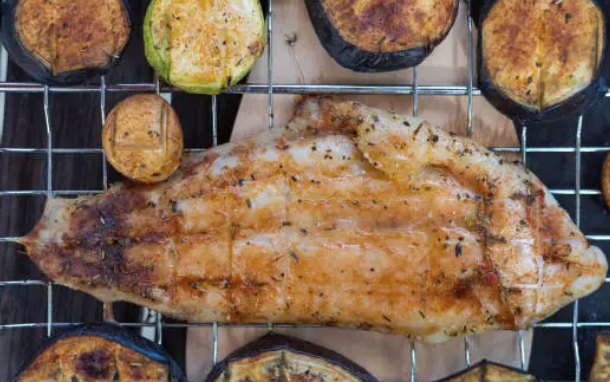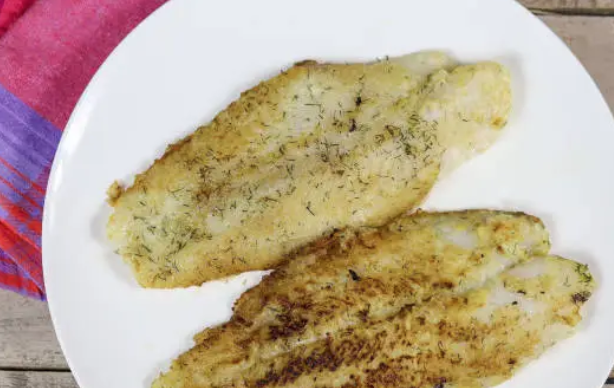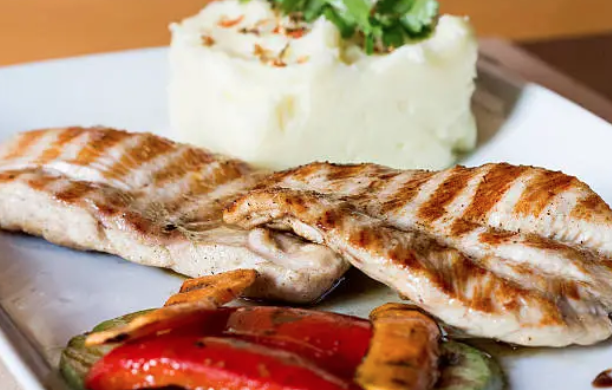Why Did My Black Cod Turn to Mush?
Black cod, also known as sablefish, is renowned for its rich, buttery texture and delicate flavor. However, it can be frustrating when you’re excited to cook a beautiful piece of black cod, only to find that it has turned into a mushy mess. So, what went wrong? In this guide, we’ll explore the reasons why black cod might turn mushy and how to avoid it, ensuring you achieve the perfect texture every time.
Why Did My Black Cod Turn to Mush? Common Reasons Explained
When black cod turns mushy, it’s usually the result of a few common mistakes. Let’s break down the top reasons and how to avoid them:
1. Overcooking the Fish

One of the most common reasons black cod turns mushy is overcooking. Unlike firmer fish such as salmon or halibut, black cod has a very delicate texture that can quickly break down if exposed to heat for too long. Overcooked black cod will lose its structure and turn into mush.
- Solution: Cook black cod just until it reaches an internal temperature of 135°F to 140°F (57°C to 60°C). This ensures that the fish is cooked through but still retains its soft, buttery texture. Use a thermometer to monitor the temperature to avoid overcooking.
2. Freezing and Thawing Improperly
If your black cod has been frozen and thawed improperly, it can result in a mushy texture. When fish is frozen too slowly or thawed too quickly, ice crystals form inside the flesh, breaking down its delicate structure. As the fish defrosts, it can become watery and mushy.
- Solution: Freeze black cod rapidly using a vacuum sealer to prevent ice crystals from forming. When thawing, always do so slowly in the refrigerator over several hours or overnight. Avoid thawing at room temperature, as this can cause the fish to break down too quickly.
3. Purchasing Previously Frozen Fish
Many times, black cod you buy at the store may have been previously frozen, even if labeled as “fresh.” If this fish wasn’t frozen and thawed correctly, it can lead to a mushy texture when cooked.

- Solution: Purchase fresh black cod from a trusted fishmonger when possible. If frozen fish is your only option, make sure to check that it has been frozen and handled properly by the seller.
4. Marinating for Too Long
Marinating black cod can enhance its flavor, but leaving it in the marinade for too long can cause the fish to break down. Acidic marinades (those with lemon, vinegar, or other acidic ingredients) can “cook” the fish’s flesh, similar to the process used for ceviche. If left too long, the fish will become mushy and fall apart during cooking.
- Solution: Limit the marinating time for black cod to about 15-30 minutes. If you’re using an acidic marinade, even less time is ideal—around 10-15 minutes. This gives the fish flavor without causing the delicate flesh to disintegrate.
5. Cooking at Too Low of a Temperature
Cooking black cod at a very low temperature can also result in a mushy texture. Low temperatures may cause the fish to slowly break down as it cooks, turning it soft and watery.
- Solution: Cook black cod at a medium-high temperature, whether grilling, broiling, or baking. Aim for around 375°F to 400°F (190°C to 205°C) for best results.
How to Cook Black Cod Perfectly
Now that we’ve covered the common reasons why black cod might turn to mush, let’s explore the best practices for cooking black cod so it retains its delicious, buttery texture.

1. Grilling
Grilling black cod can give it a slight char while keeping the inside moist and tender. It’s important to preheat the grill and oil the grates to prevent the delicate fish from sticking.
- Temperature: Grill at medium-high heat, around 375°F to 400°F.
- Time: Grill for about 10-15 minutes, depending on the thickness of the fish, flipping only once.
- Tip: Ensure the fish reaches an internal temperature of 135°F to 140°F for perfect doneness.
2. Broiling
Broiling is another fantastic way to cook black cod, especially if you’re short on time. The high heat of the broiler gives the fish a beautiful golden crust while keeping the inside soft and flaky.
- Temperature: Preheat the broiler to 500°F.
- Time: Broil for about 6-10 minutes, depending on the thickness of the fillet.
- Tip: Keep a close eye on the fish to prevent overcooking.
3. Baking
Baking black cod is a simple method that requires little attention. This method works well when you want to infuse the fish with herbs or cook it alongside vegetables.
- Temperature: Bake at 375°F.
- Time: Bake for about 12-15 minutes, depending on the size of the fillet.
- Tip: Check the internal temperature with a thermometer to ensure it doesn’t overcook.
FAQs: Preventing Mushy Black Cod
1. Can I salvage mushy black cod?
Once black cod becomes mushy, it’s difficult to restore its texture. However, you can repurpose it into fish cakes or a fish-based spread.
2. How do I know if black cod is overcooked?
Overcooked black cod will lose its firmness and turn mushy. It may also start to break apart as you try to move it or flake it with a fork.
3. Can I freeze black cod without ruining its texture?
Yes, you can freeze black cod, but be sure to use a vacuum sealer or airtight packaging. Thaw it slowly in the refrigerator to avoid mushiness.
4. What’s the best way to avoid overcooking black cod?
The best way to avoid overcooking is to use a thermometer. Aim for an internal temperature of 135°F to 140°F to achieve a perfectly cooked texture.
5. Is there a preferred cooking method to avoid mushy cod?
Grilling or broiling at high heat can help avoid a mushy texture by cooking the fish quickly and sealing in moisture.
Conclusion:
In summary, the key to preventing black cod from turning to mush is to handle it carefully at every stage—from freezing and thawing to cooking. Avoid overcooking by keeping an eye on the internal temperature, and always thaw frozen fish slowly in the refrigerator. Additionally, be cautious when marinating and don’t let it sit too long in acidic mixtures.
By following these simple steps, you’ll ensure that your black cod stays tender, flaky, and delicious, offering that signature buttery texture that makes it so special.

